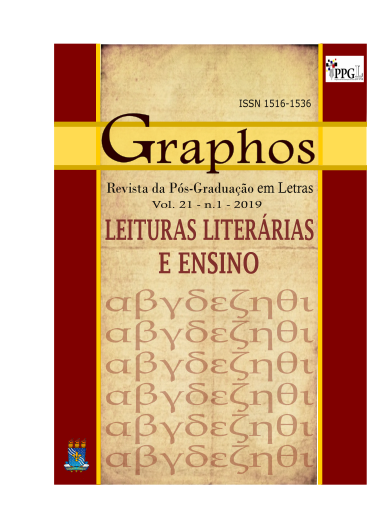Literature as an act of resistance in “O sagrado pão dos filhos”, by Conceição Evaristo
Keywords:
Afro-Brazilian literature, Short story, Critical, Resistance, Reading circlesAbstract
Conceição Evaristo is an Afro-Brazilian writer of great relevance in the current Brazilian scenario. She has contributed for building a resistance literature focused on ethno-racial and gender issues, in an intersectional movement which also includes the class category. Her literary production, in general, is guided by her experience as a black woman, submitted to various subaltern conditions in Brazil and by evoking the memory of her African ancestors as a way of constructing a counter-discourse about the black struggle in the country. This paper presents a comprehension discourse of the short story “O sagrado pão dos filhos”, from the book Histórias de leves enganos e parecenças, which resulted from our reading and interpretation of this text and from the experience of a shared reading in a reading circle at Memórias de Baobá, an even held in the city of Fortaleza, Brazil. Literary criticism, Bakhtinian approach of language as well as French discourse analysis were used as basis for the literary analysis of the short story. “O sagrado pão dos filhos” was perceived in its complex aesthetic texture revealing how literature builds the human, setting up a decolonial gesture, echoing silent voices that are subjacent to the racial process of economic and symbolic subalternization.
Downloads
References
BAKHTIN, Mikhail; Volochínov, V. N. Marxismo e filosofia da linguagem: problemas fundamentais do método sociológico na ciência da linguagem. Tradução de Michel Lahud e Yara Frateschi Vieira. 12. ed. São Paulo: Hucitec, 1996.
BARTHES, Roland. O prazer do texto. Tradução de J. Guinsburgl. São Paulo: 2008. (Elos, 2)
BENJAMIN, Walter. Obras escolhidas: magia e técnica, arte e política. 2. ed. São Paulo: Brasiliense, 1986. BÍBLIA SAGRADA. Tradução de João Ferreira de Almeida. São Paulo: Sociedade Bíblica do Brasil, 2000.
BOSI, Alfredo. Literatura e resistência. São Paulo: Companhia das letras, 2002.
_____. Narrativa e resistência. In: Revista Itinerários, Araraquara, n° 10, 1996. p. 23. Disponível em: <http://seer.fclar.unesp.br/itinerarios/article/viewFile/2577/2207>. Acesso em: 13 jun. 2017.
COSSON, Rildo. Círculos de leitura e letramento literário. São Paulo: Contexto, 2014.
DICIONÁRIO Priberam da Língua Portuguesa [em linha], 2008-2013. Disponível em:<https://www.priberam.pt/dlpo/magn%C3%B3lia>. Acesso em: 24 jun. 2018.
DUARTE, Eduardo de Assis; LOPES, Elisângela. Conceição Evaristo: literatura e identidade. In: Literafro: o portal da literatura afrobrasileira. UFMG, 2018. Disponível em: <http://www.letras.ufmg.br/literafro/autoras/29-critica-de-autores-feminios/199-conceicaoevaristo-literatura-e-identidade-critica>. Acesso em: 22 out.2018.
EVARISTO, Conceição. Histórias de leves enganos e parecenças. Rio de Janeiro: Malê, 2016.
_______. O entrecruzar das margens - gênero e etnia: apontamentos sobre a mulher negra na sociedade brasileira. In: DUKE, Dawn. (Org.). A escritora afro-brasileira: ativismo e arte literária. Belo Horizonte: Nandyala, 2016, p. 100/110.
_______. Literatura negra: uma poética da nossa afro-brasilidade. Scripta. Belo Horizonte, v. 13, n. 25, 2009, p. 17-31.
LIMA, Juliana Domingos de. Conceição Evaristo: Minha escrita é contaminada pela condição de mulher negra (Entrevista). Jornal Nexo, 2017. Disponível em:<https://www.nexojornal.com.br/entrevista/2017/05/26/>. Acesso em: 10 out. 2018.
MAINGUENEAU, Dominique. Cenas da enunciação. POSSENTI, Sírio; SOUSA E SILVA, Maria Cecília Perez de. (Orgs.) São Paulo: Parábola Editorial, 2008.







